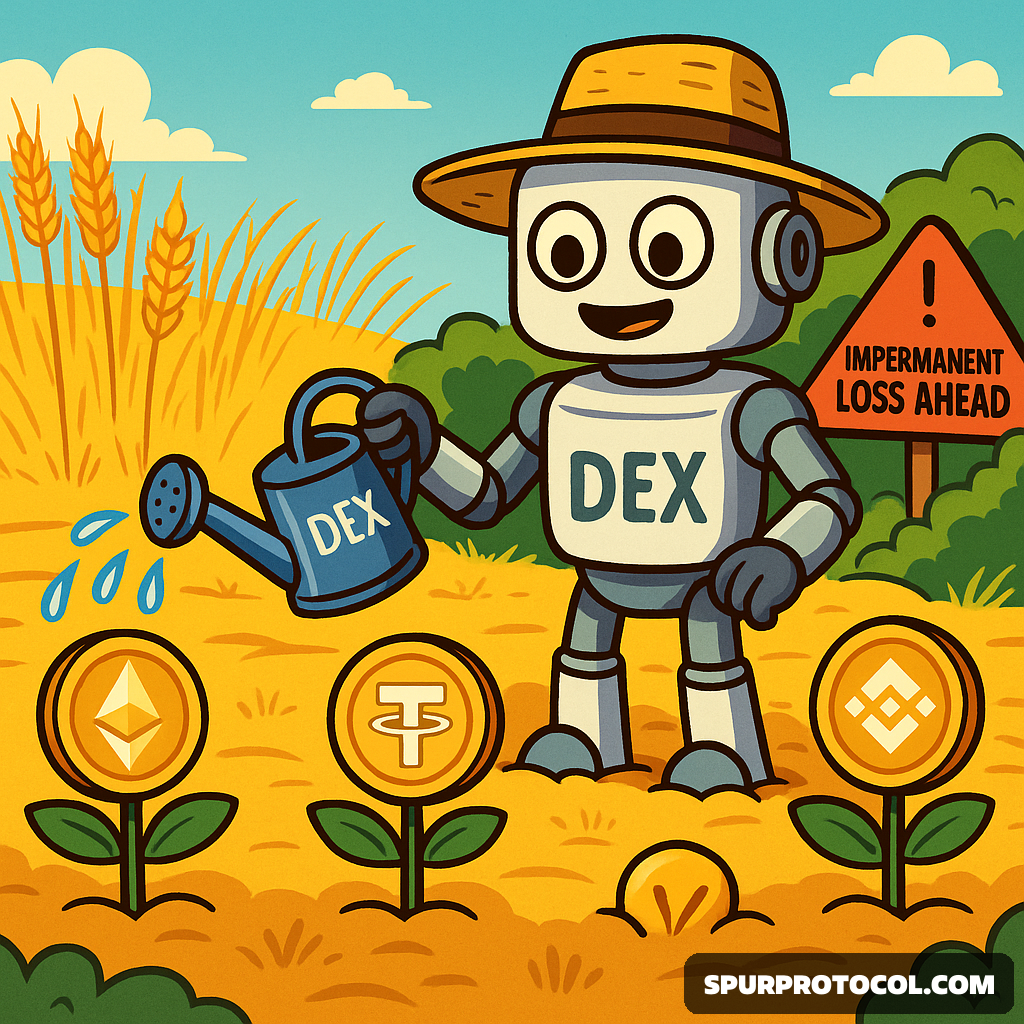Yield Farming on DEXs: Crypto’s High-Risk, High-Reward Game
The world of decentralized finance (DeFi) has brought us many exciting innovations — but few are as lucrative or as misunderstood as yield farming.
This digital “farming” doesn’t involve tractors or soil. Instead, it's a way to earn passive income by providing liquidity to Decentralized Exchanges (DEXs) like Uniswap, PancakeSwap, or SushiSwap.
But like any gold rush, there's both fortune and failure.
Let’s break down exactly what yield farming is, how it works on DEXs, and the rewards and risks you should understand before jumping in.
What Is Yield Farming?
In simple terms, yield farming means locking up your crypto in a liquidity pool and earning rewards (usually in the form of interest or tokens) for doing so.
Think of it as putting your money in a digital vault that helps other people trade, and in return, you get paid a share of the fees or bonuses.
How Yield Farming Works on DEXs
Here’s how it usually works:
1. You choose a liquidity pool (e.g., ETH/USDC).
2. You deposit equal values of both tokens into that pool.
3. You receive LP (Liquidity Provider) tokens in return — these represent your share in the pool.
4. As users trade using the pool, you earn a cut of the trading fees.
5. In many cases, you can also stake those LP tokens in a farm to earn even more rewards (usually in the platform’s native token).
Some DEXs even offer double or triple yield farming, where users get multiple rewards from different protocols for the same deposit.
The Rewards: Why People Love Yield Farming
1. Passive Income Potential
Once you deposit into a pool, you can sit back and earn yield without active trading.
2. Multiple Rewards
Some platforms give trading fees and additional reward tokens. It’s like earning interest and cashback at the same time.
3. Early Access to New Projects
New DEX projects often offer high APYs (Annual Percentage Yields) to attract users — great for early adopters.
4. Compounding Gains
Farmers can re-invest rewards for compound interest, potentially growing their yield faster than traditional investments.
The Risks: What You Should Watch Out For
While yield farming can be profitable, it’s not risk-free. Here are some potential pitfalls:
1. Impermanent Loss
If the price of your pooled tokens changes significantly compared to when you deposited them, you could lose more than you earned — even with high APYs.
Example: If ETH skyrockets in price while you’re farming ETH/USDC, your returns might not keep up with just holding ETH alone.
2. Smart Contract Vulnerabilities
Because everything is run by code, bugs or hacks can lead to loss of funds. If the DEX or farm has insecure code, you could lose everything.
3. Scam Projects or “Rug Pulls”
Not all DEXs are trustworthy. Some developers launch farms with high rewards, then pull out all the funds and vanish — leaving users with worthless tokens.
4. High Gas Fees
On networks like Ethereum, farming can become expensive due to gas fees. Sometimes, you spend more in transaction costs than you earn.
5. Overhyped APYs
Be cautious of farms offering 1,000%+ returns — they’re usually unsustainable and might drop sharply.
Pro Tips for Safer Yield Farming
- Stick to well-known DEXs and audited protocols (like Uniswap, Curve, Balancer).
- Start small and only farm with assets you're okay risking.
- Research impermanent loss calculators to estimate possible outcomes.
- Diversify across farms and pools — don’t go all-in on one token pair.
- Monitor your pools regularly and be ready to withdraw if things go sideways.
The Future of Yield Farming
As DeFi continues to evolve, so does yield farming. New models are emerging:
- Auto-compounding vaults (like Beefy Finance)
- Smart yield optimizers using AI
- Cross-chain farming on Layer 2 networks (Polygon, Arbitrum)
While the wild APYs may settle down, safe and stable farming could become a lasting part of digital finance — especially for long-term holders.
Is Yield Farming Worth It?
Pros Cons
- Passive income opportunities Risk of impermanent loss
- Rewards from multiple protocols Smart contract vulnerabilities
- Exposure to early projects Scams/rug pulls in new platforms
- Flexible and permissionless High gas fees on some networks
If you’re smart, careful, and willing to learn, yield farming on DEXs can be a powerful tool for making your crypto work for you.

